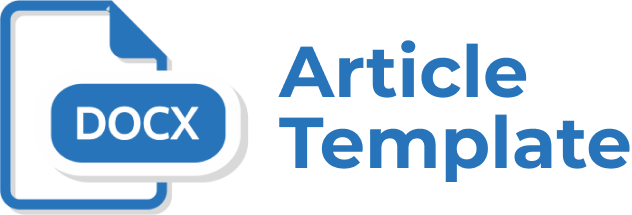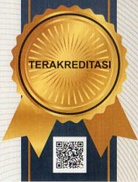Analisis E-filing Direktorat Jenderal Pajak dan E-filing Online Pajak untuk Pengembangan Jasa Aplikasi Perpajakan (Studi Kasus di Indonesia)
Abstract
Taxes play an important role in increasing Indonesia's economic growth which is indicated by 82.85% of funds for the State Revenue and Expenditure Budget originating from state tax revenues. The Directorate General of Taxes as the most important institution in Indonesia issued an e-filing tax administration system (Electronic Filing System). DGT is assisted by ASP in implementing e-filing to facilitate tax services to taxpayers. However, ASP's e-filing portal continues to decline, this attracts the author's attention to examine the existence of ASP's e-filing in the next few years. This study aims to find out the gaps in future application development so that it becomes an opportunity for e-filing taxes which Application Service Providers compare to e-filing at the Directorate General of Taxes. The research method used interviews. The results of this research indicate that the opportunity for ASPs e-filing is high for the next few years, this is indicated by the consultants who continue to use ASPs e-filing because there are several advantages of ASP's e-filing that DGT does not have.
Keywords
Full Text:
PDFReferences
Akhmadi, M. H. (2017). Determinan keberhasilan e-filing pajak di Indonesia: Studi kasus Kantor Pelayanan Pajak Pratama Jakarta Tamansari Dua. Jurnal Pajak Indonesia, 1(1), 44–51.
Bai, S., Koong, K. S., Wu, F., & Bhuyan, J. (2019). Adoption of e-filing: The US journey. International Journal of Revenue Management, 11(1–2), 1–22.
Chen, C.-C., & Tsai, J.-L. (2019). Determinants of behavioral intention to use the Personalized Location-based Mobile Tourism Application: An empirical study by integrating TAM with ISSM. Future Generation Computer Systems, 96, 628–638. https://doi.org/10.1016/j.future.2017.02.028
Davis, F. D. (1989). Perceived Usefulness, Perceived Ease of Use, and User Acceptance of Information Technology. Management Information System Research Center, Universtiy of Minnesota, Vol. 13, 319–340. https://doi.org/https://doi.org/10.2307/249008
DeLone, W. H., & McLean, E. R. (1992). Information systems success: The quest for the dependent variable. Information Systems Research, 3(1), 60–95. https://doi.org/10.1287/isre.3.1.60
Direktur Jenderal Pajak. (2005).
Direktur Jenderal Pajak. (2020).
Khoeriyah, A., & Pohan, C. A. (2019). Pelaksanaan Sistem E-Filing Dalam Rangka Meningkatkan Kepatuhan Wajib Pajak Orang Pribadi Pada Kantor Pelayanan Pajak Pratama Jakarta Tanah Abang Tiga Tahun 2018. 2, 116–127.
Maji, S. K., & Pal, K. (2021). Factors Affecting the Adoption of e-Filing of Income Tax Returns in India: A Survey. Journal of Accounting Research & Audit Practices, 16(1), 46–67.
Menteri Keuangan Republik Indonesia. (2007).
Menteri Keuangan Republik Indonesia. (2018).
Nurhayati, E., & Hidayat, N. (2019). Analisis Perbandingan Prediksi Keberterimaan E-Filing Dengan E-Form Dalam Penyampaian Surat Pemberitahuan (Spt) Tahunan 1770/1770S. Jae (Jurnal Akuntansi Dan Ekonomi), 4(2), 1–13.
Qadri, R. A., & Darmawan, E. E. (2021). E-Filing Implementation, Tax Compliance, and Technology Authority. Journal of Applied Accounting and Taxation, 6(1), 23–36.
Sharma, S. K., & Sharma, M. (2019). Examining the role of trust and quality dimensions in the actual usage of mobile banking services: An empirical investigation. International Journal of Information Management, 44, 65–75. https://doi.org/10.1016/j.ijinfomgt.2018.09.013
Teza, S. D., & Junep, A. R. (2018). Analisis Persepsi Wajib Pajak Tehadap Efektifitas Dan Kepatuhan Pelaporan Pajak Menggunakan E-Filing. ECONOMICA Jurnal Program Studi Pendidikan Ekonomi STKIP PGRI Sumatera Barat Vol.7 No.1 (53-59), 53(9), 1689–1699.
Wimayo, V. (2018). Perbedaan Compliance Cost Sebelum Dan Sesudah Penggunaan Aplikasi E-Filing Pada Wajib Pajak Badan Pengguna E-Filing. Journal of Applied Managerial Accounting, 2(2), 129–140.
DOI: https://doi.org/10.32487/jshp.v8i1.1877
Refbacks
- There are currently no refbacks.
JSHP: Jurnal Sosial Humaniora dan Pendidikan
is licensed under a Creative Commons Attribution-ShareAlike 4.0 International License (CC BY-SA 4.0)





